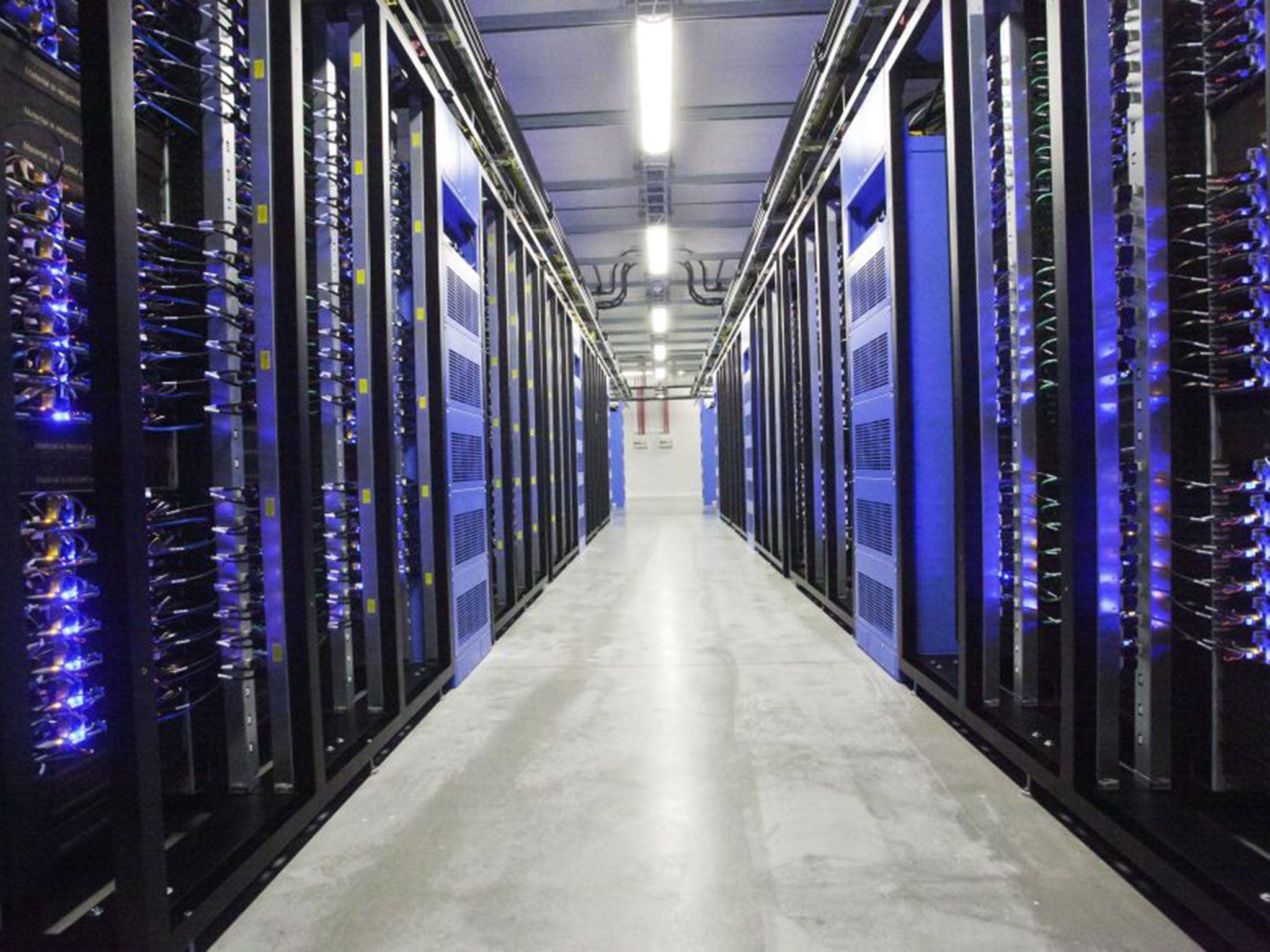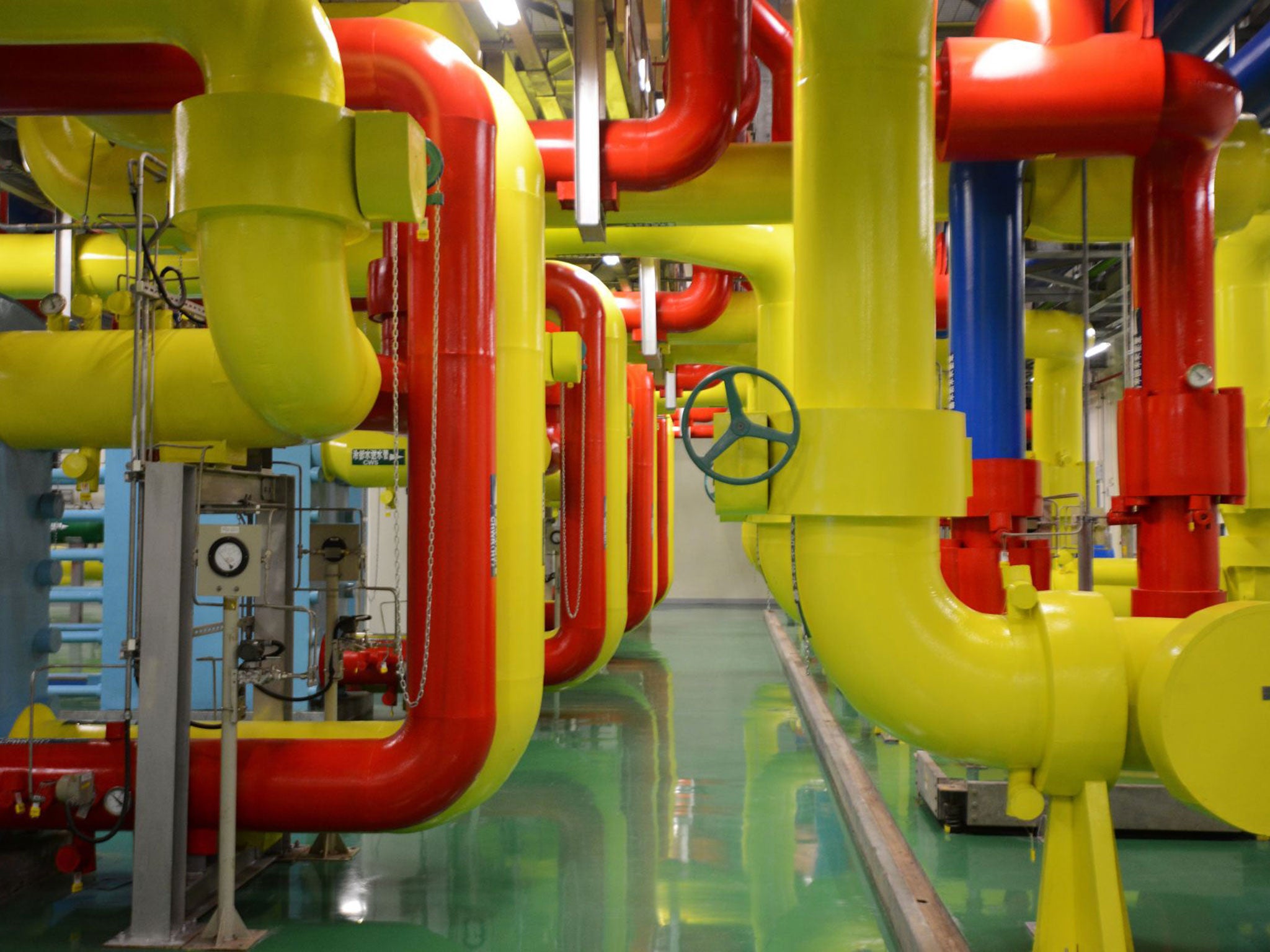Global warming: Data centres to consume three times as much energy in next decade, experts warn
416.2 terawatt hours of electricity world’s data centres used last year was far higher than UK’s total consumption

Your support helps us to tell the story
From reproductive rights to climate change to Big Tech, The Independent is on the ground when the story is developing. Whether it's investigating the financials of Elon Musk's pro-Trump PAC or producing our latest documentary, 'The A Word', which shines a light on the American women fighting for reproductive rights, we know how important it is to parse out the facts from the messaging.
At such a critical moment in US history, we need reporters on the ground. Your donation allows us to keep sending journalists to speak to both sides of the story.
The Independent is trusted by Americans across the entire political spectrum. And unlike many other quality news outlets, we choose not to lock Americans out of our reporting and analysis with paywalls. We believe quality journalism should be available to everyone, paid for by those who can afford it.
Your support makes all the difference.The amount of energy consumed by the world’s data centres – the repositories for billions of gigabytes of information – will treble in the next decade, putting an enormous strain on energy supplies and dealing a hefty blow to efforts to contain global warming, experts say.
Whether you’re “liking” something on Facebook, streaming the latest Tarantino movie or posting an instagram from the pub, every internet activity involves huge amounts of data that needs to be stored somewhere. And as the “internet of everything” brings innovations such as driverless cars and high-definition video watches ever closer, the vast network of data centres that have sprung up in the past decade will spread.
This wouldn’t be a problem if these facilities – which range from a small room with a few servers to vast 150,000 square metre “farms” – didn’t consume such enormous amounts of energy.
Already, data centres have mushroomed from virtually nothing 10 years ago to consuming about 3 per cent of the global electricity supply and accounting for about 2 per cent of total greenhouse gas emissions. That gives it the same carbon footprint as the airline industry.
To put the size of this consumption into even sharper relief – the 416.2 terawatt hours of electricity the world’s data centres used last year was significantly higher than the UK’s total consumption of about 300 terawatt hours.
Massive as data centre energy use may already be, this is nothing to what lies in store, analysts warn. Ian Bitterlin, Britain’s foremost data centre expert and a visiting professor at the University of Leeds, says the amount of energy used by data centres is doubling every four years – despite the innovations in hardware that massively increase their capacity to store data. As a result, analysts forecast that data centres will consume roughly treble the amount of electricity in the next decade.
One way to curb their carbon footprint is to increase the amount of renewable energy they use – a development that is already under way but has much, much further to go to offset the exponential growth in internet traffic, experts say. Even if the industry were able to shift to 100 per cent renewable electricity, the volume of energy they would need would put intolerable pressure on the world’s power systems.
“If we carry on going the way we have been it would become unsustainable – this level of data centre growth is not sustainable beyond the next 10 to 15 years. The question is, what are we going to do about it?” says Professor Bitterlin.
He points to a study focused on Japan which suggests that its data centres would consume its entire electricity supply by 2030 if growth continues at today’s rate.
“We need to be more responsible about what we use the internet for … Data centres aren’t the culprits – it’s driven by social media and mobile phones. It’s films, pornography, gambling, dating, shopping – anything that involves images. It’s a great example of the Jevons paradox – the easier you make it to consume the product the greater the consumption will be.”

Unless there is some kind of game-changing breakthrough on data storage – such as the development of a far-superior alternative to silicon – the world’s internet use is eventually going to have to be significantly rationed. Professor Bitterlin added that a form of carbon known as graphene could potentially revolutionise data storage.
But even with a revolution in data storage capacity, he believes the only long-term solution to the energy problem will have to involve significant cuts to our internet use at some point in the future.
This could be through some kind of tax or charge on data use – for example, imposing a fee for uploading photographs on to Facebook – or even a straightforward rationing of activity; but he acknowledges that these kind of moves would probably be “political suicide”. Other measures – such as switching from colour to black and white photographs – could also go a long way to reducing data consumption.
Governments across the world, including the UK, are starting to wake up to the data centre problem at the same time as they encourage the roll-out of data-hungry broadband networks to ever remoter locations. The roll-out is primarily designed to help small businesses, but the bulk of the faster internet access is enjoyed by consumers. And some internet companies – such as Facebook, Google and Apple – are leading efforts to be more environmentally responsible. The measures being taken include housing data centres in cold climates – which dramatically reduces the energy needed to cool the facilities – with a ready supply of renewable energy.
Sweden fits both bills, which is partly why Facebook has opened a major data centre in the far north of the country, in the mining town of Lulea, 70 miles from the Arctic Circle. The 84-acre site houses tens of thousands of computer servers that still require 500 huge fans to cool them.
But at the moment the industry’s environmental actions fall far short of what is needed, analysts warn. “It’s a tremendous challenge,” said Greenpeace’s senior IT analyst, Gary Cook. “If the sector simply grew on its current path without any thought as to where its energy came from, it would become a major contributor to climate change far beyond what it already is.
“This would make it impossible to make the transition to renewable energy in time to prevent runaway climate change.”
But the sheer size of the problem also provides an opportunity for the data centre industry to lead a revolution in renewable energy, which will help drive down costs for everyone, Mr Cook said.
“The sector is critical to the development of renewable energy. Along with electric vehicles, data centres are the big risk area for energy demand, because they are growing so fast – whereas energy demand is relatively flat or declining in many areas. This gives them huge leverage to drive energy investment – and that could be towards renewables, or it could be towards older coal plants where they have excess capacity.”
Which way the industry decides to go could have a huge bearing on whether renewable energy receives the huge investment that drives innovation – bringing down the cost of green electricity to everybody’s benefit. It could also play a large role in determining whether the world can avoid the worst ravages of global warming.
Join our commenting forum
Join thought-provoking conversations, follow other Independent readers and see their replies
Comments